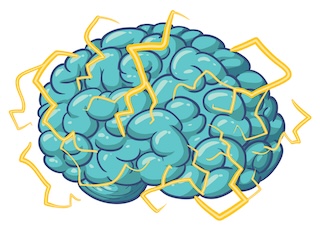February 25, 2025
by Patricia Tomasi

A new study published in Nursing in Critical Care looked at building evidence-based interventions to improve staff well-being in paediatric critical care using the behaviour change wheel. “The study aimed to explore what wellbeing means to staff who work in paediatric intensive care settings,” study author Rachel Shaw told us. “We wanted to explore what challenged their wellbeing and what might help to improve it. After that, we planned to develop interventions that would help staff to prioritize and even improve their wellbeing at work.”
[More]
February 18, 2025
by Patricia Tomasi

A new study published in PubMed looked at guided self-help versus group treatment for children with obesity. “This study compares the intensive group-based treatment for children with obesity, called family-based treatment, with a guided self-help version which is delivered to the parent /child dyad,” study author Kerri Boutelle told us. “We were interested whether the guided self-help version would provide similar weight losses to the intensive family-based treatment.”
[More]
February 11, 2025
by Patricia Tomasi

A new study published in PubMed looked at the associated risk and resilience factors of Alzheimer's disease in women with early bilateral oophorectomy. “The study is about risk and resilience factors related to Alzheimer’s disease (AD) in women,” study author Noelia Calvo told us. “Epidemiologic data show that AD is more prevalent in women than in men, but we do not know why."
[More]
February 4, 2025
by Patricia Tomasi

A new study published in PNAS looked at how expert navigators deploy rational complexity–based decision precaching for large-scale real-world planning. “Our study is about the intricate planning processes of London taxi drivers, who are renowned for their exceptional knowledge of the city's layout,” study author Daniel C. McNamee told us. “We aimed to uncover how these expert navigators manage the complex task of route planning across more than 26,000 streets in London.”
[More]
January 31, 2025
by Elizabeth Pratt

More than 18 thousand structures were destroyed and 29 people killed in the Eaton and Palisades fires in southern California.
Whilst the fires burned for 24 days, the recovery efforts are just beginning and experts say the mental health impacts could be long lasting.
[More]
January 31, 2025
by Elizabeth Pratt

People aged 50 and older find with poor or fair health are twice as likely to report not having any close friends.
Data from the University of Michigan National Poll on Healthy Aging found that friends can play a key role for people over the age of 50, but that those with mental or physical health problems can experience challenges in this area.
[More]
January 30, 2025
by Elizabeth Pratt

Those living with multiple sclerosis who are pregnant have a greater chance of experiencing mental illness during pregnancy and in the first few years following birth.
Research published in Neurology found that pregnant people with MS had a 26% increased risk of mental illness during pregnancy when compared with pregnant people without MS and a 33% increased risk of mental illness after birth.
[More]
January 29, 2025
by Elizabeth Pratt

Did your parents have a favorite child?
Research published in the Psychological Bulletin suggests they may have and the factors contributing to favoritism may surprise you.
[More]
January 28, 2025
by Patricia Tomasi

A new study published in the Lancet looked at associations between childhood trauma and childhood psychiatric disorders in Brazil. “This study looks at the impact of childhood trauma exposure on the mental health of adolescents at ages 15 and 18 in a Brazilian birth cohort,” study author Megan Bailey told us. Bailey is an ESRC-Funded PhD Researcher in the Department of Psychology at the University of Bath.
[More]
January 21, 2025
by Patricia Tomasi

A new study published in the Journal of Nature aimed to understand the neural code of stress to control anhedonia. “The goal of the study was to understand what drives reduced reward-seeking in individuals who are susceptible to traumatic stress,” study author Mazen A. Kheirbek told us. “We were hoping to identify patterns of activity in the brains of mice that may be related to this process of anhedonia, and patterns that are associated with resiliency to developing anhedonia.”
[More]